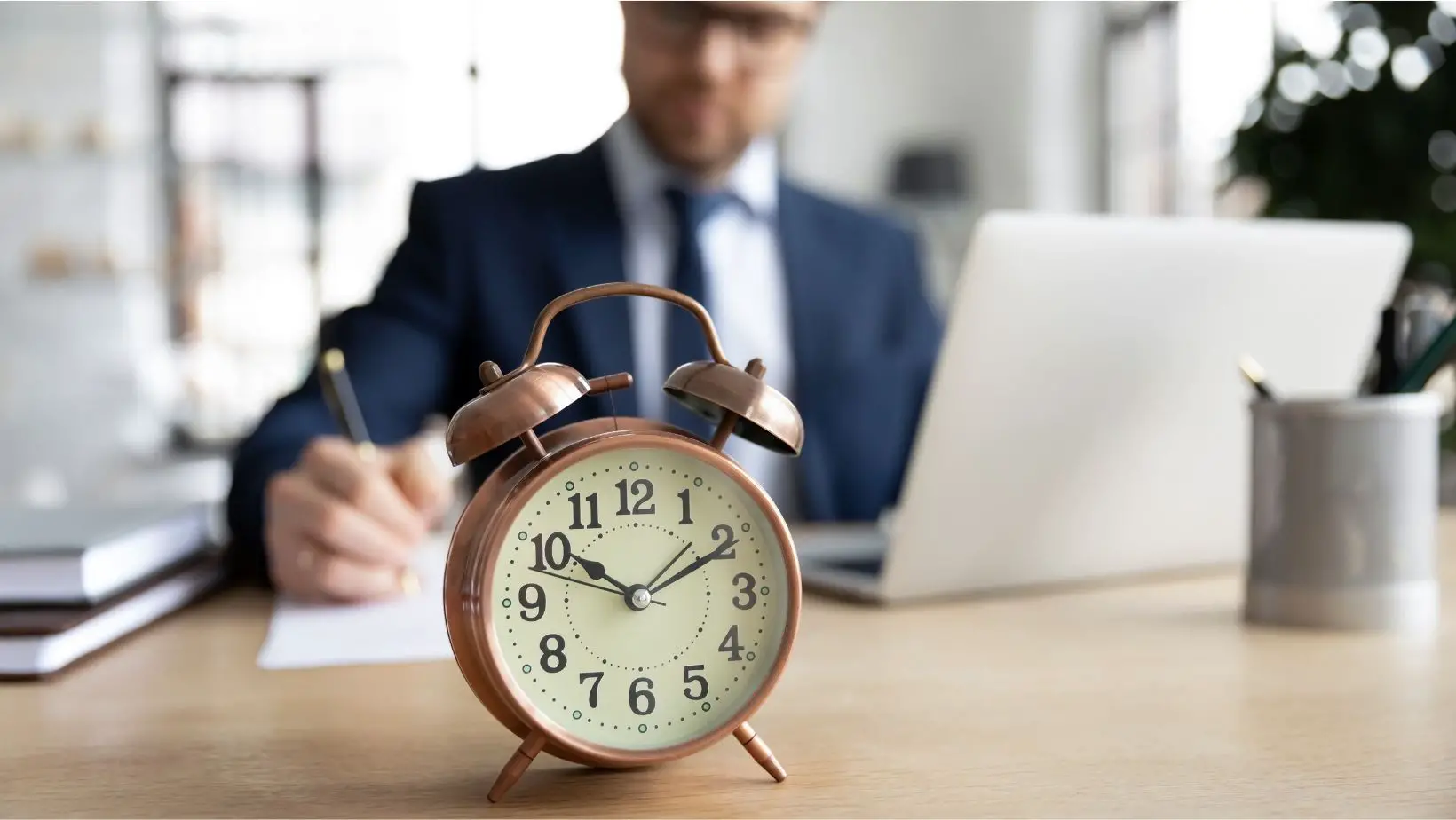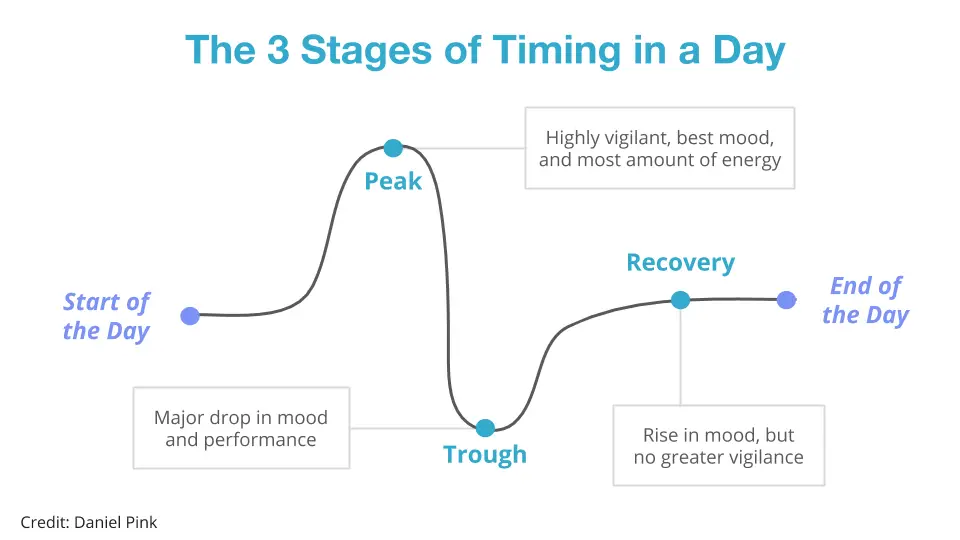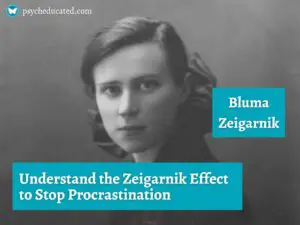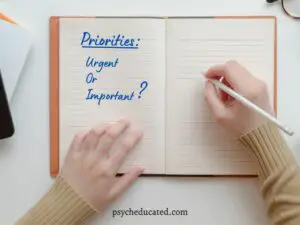Find us on:
What Is The Most Productive Time Of The Day?

You’ve most likely come across numerous ideas on how to be more productive during the day and how to get your things done. To help you maximize your productivity, I have written an article on the subject too. You can read it here.
But what we’re going to talk about today is not what and how to do things in order to boost productivity, it’s WHEN to do them.
Because choosing the right time to hustle can make a huge difference in how effective we can be at doing our tasks. Like Daniel Pink said in his book “When: The Scientific Secrets of Perfect Timing,” emphasizing the importance of timing
I used to believe that timing is everything. Now I believe that everything is timing.”
Daniel Pink
Disclosure: There are some affiliate links below, and I may receive commissions for purchases made through links in this post at no additional cost to you. Read the full disclaimer here.
The most productive time of the day
You might have heard that the most productive time of the day is early in the morning or maybe even before sunrise because there are fewer distractions.
But this isn’t always the case.
Chronobiology, the science that studies the effects of time on internal biological events, can help us understand when we are most productive during the day by tracking our bodies’ natural circadian rhythm, whether we are morning people or night-owls.
Daniel Pink, author of When: The Scientific Secrets of Perfect Timing, talks in his book about the importance of respecting our body clock by doing the right thing at the right time.
He explains that people go through three stages during the day:
- Peak: in the morning, we have the most energy and the best mood, and we’re highly vigilant.
- Trough: in the early to mid-afternoon, mood and performance drop significantly.
- Recovery: in the early evening, our mood rises back up, but vigilance stays relatively low.

Picture credit: Melissa Hughes
Some people go through their days in the opposite order: recovery, trough, and peak.
The order in which these stages occur depends on the person’s chronotype, or natural circadian rhythm, which determines whether they are a “lark” (morning person), an “owl” (evening person), or a “third bird” (somewhere in the middle).
In Daniel Pink’s words:
all of us experience the day in three stages—a peak, a trough, and a rebound. And about three-quarters of us (larks and third birds) experience it in that order. But about one in four people, those whose genes or age make them night owls, experience the day in something closer to the reverse order—recovery, trough, peak.
Daniel Pink
What has also been observed in his research is that the person’s chronotype can shift over time. People start their lives as children, being larks, but later on, as teenagers and young adults, they frequently become owls, and then, as adults, they return to being larks once again.
Other research found that our body clock is also influenced by seasonal changes and light exposure.
It’s all about our biological rhythm
First, let’s explain what’s a biological rhythm…
Biological rhythms are a series of repetitive body functions that are controlled by an internal clock that keeps our biological processes running in a well-organized routine.
The circadian cycle (Sleep/Wake) is one example of biological rhythms. Our natural body clock makes us sleep a sufficient amount of time at night and wakes us up in the morning.
So, if you want to have a more productive day, you need to respect your circadian rhythm and work with it, not against it. You can’t force your body to work when it’s time to rest. And living against the body clock has consequences.
Night-shift workers, for example, are at a higher risk of developing health problems as a result of a disruption in the circadian rhythm.
So, your peak productivity can be early in the morning, late in the afternoon, or at lunchtime (1:30 p.m) as found in a study on university students in the UK.
It all depends on your biological rhythm.
How do you find out what time of day you are most productive?

The best way to figure out what works best for you is to experiment, gather data, and try to identify patterns.
For example, you can try getting up early one morning and try working late into the night one evening. See which one works best for you.
Search for clues regarding your energy levels, your ability to concentrate, your vigilance, and your overall productivity.
Some people find that they are most productive in the morning. They can get up early and get a lot of work done before the day gets busy. Other people find that they are more productive in the evening. They can work late into the night and get more done than they would during the day.
Whatever your type is, work with it and plan your day accordingly.
How to make the most of your time
Once you identify your peak productivity hours, you’re going to have to make the most out of what you’ve got.
Don’t get me wrong! You’re not going to reduce your workday to a couple of hours in which you feel energetic! Although that would be great! isn’t it?
What you can do instead is identify your high-priority task or the one that demands the most cognitive abilities and do it in the time frame when you feel the most productive.
Try to limit distractions during this period (when you feel the most productive) so you don’t waste this precious time.
Don’t force your body to work when you’re not concentrated, instead switch to a less demanding task or just pause for a little.
Listen to your body and mind. It’s not a machine. you can’t go non-stop for eight hours. Make sure to take frequent breaks during your workday to recharge your body and refresh your mind.
Beware of these productivity killers
Having too much time doesn’t always mean more productivity, and working during your peak hours doesn’t always mean that you’re going to deliver higher results, because sometimes other factors can interfere with your quest to be more productive.
For example, sleep deficiency and having more time than you really need are two productivity killers that can sabotage our good intentions to make the day more productive.
Sleep deficiency
Sleeping is a basic human need. Most adults require between seven and nine hours of sleep each night.
One prevalent misconception is that people may learn to function with little sleep with no harmful consequences. However, research suggests that receiving adequate quality sleep at the correct times is critical for mental and physical health, safety, and quality of life.
Poor sleep can affect your work, your education, and your social interactions.
If you don’t want to lose your productivity, you need to take care of the quality and quantity of your sleep. Because it doesn’t matter if you’re awake for too many hours trying to maximize your work time if you’re not really efficient at what you’re doing.
Having too much time on your hand
I believe that the less time we have, the more productive we are because our perspective on time influences the effort that we put into accomplishing a task.
For example, if I know that I’m free for 10 hours and start writing a two-page essay for school, it would most likely take 10 hours to finish it.
But, if I only had two hours, I would finish it in two hours and the quality would probably be the same.
I’m sure you know what I’m talking about.
The bottom line is that if you want to be productive, don’t give your task more time than it really needs. In fact, if you give it a little less, your brain will start working faster to accomplish it.
To wrap things up
If you want to know what the most productive time of your day is, you need to determine your chronotype, which can be influenced by age and season. Then organize your tasks for the day, assigning the most important and hardest ones to the hours when you feel the most energetic.
Knowing your natural body clock, your peak productivity time, and using it for maximum results is what it takes to have the most productive day.
Make sure that you’re not sabotaging your productivity with harmful practices on your health and well-being. Instead, implement self-care habits into your routine to increase productivity.
And most importantly, always listen to your body.
Don’t forget to share this article with your friends!






I am most productive in the morning. Between 6am-10am are my prime hours. However, I need to go to bed early enough for those to be productive.
Exactly! You need to be well rested so that you benefit from your peak hours the most.